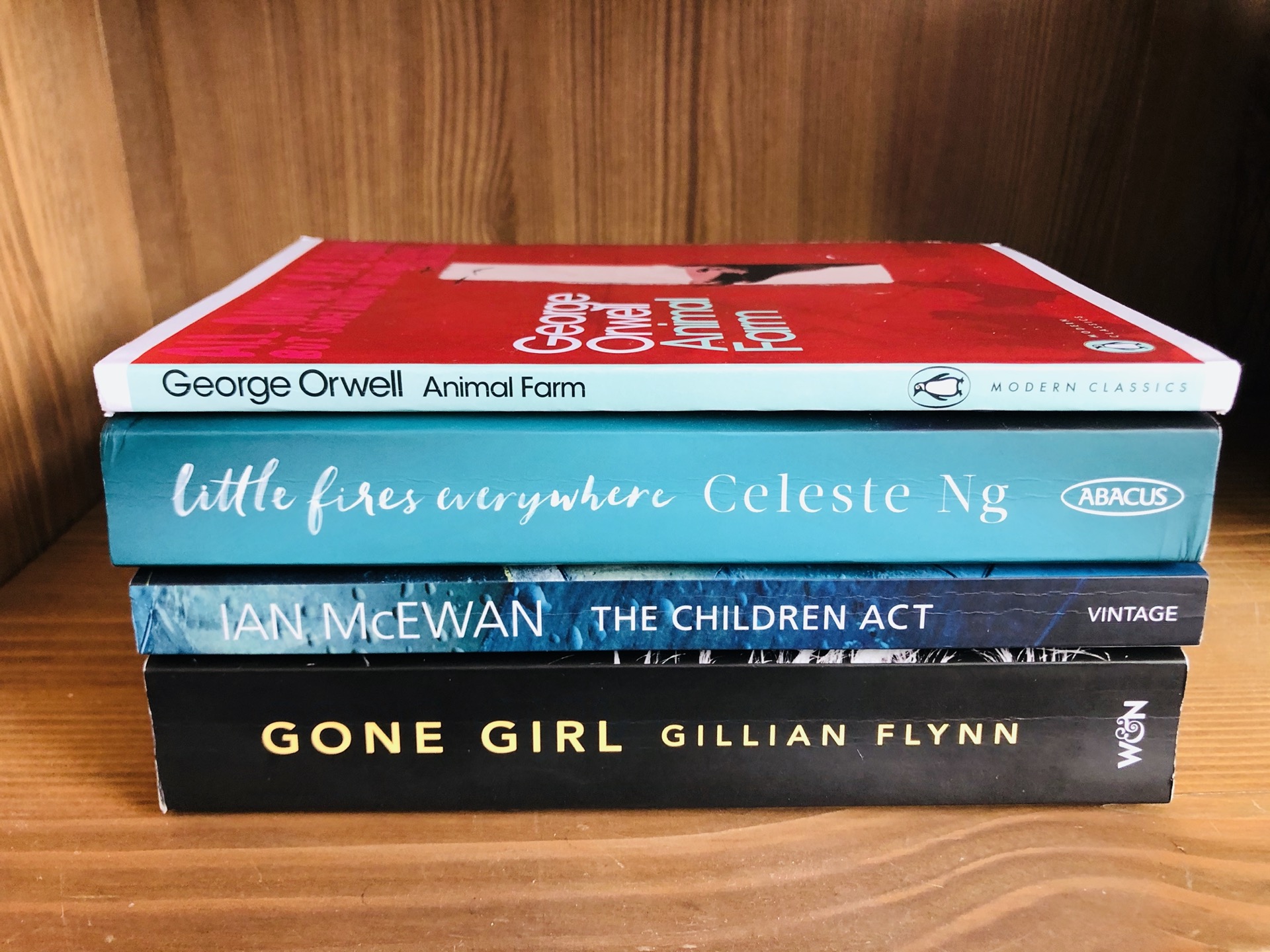In the week 20-27th July this year, I participated in my first ever ‘Reading Rush’. This was an online global readathon where you had to read as much as possible within one week- and you were able to record your progress, claim badges and join in with live ‘reading sprints’. In this article, I wanted to talk about my experience with the challenge and how it could help you read more and recover out of slumps.
I first found out about the challenge via Facebook and planned what to read from the start of July. I then signed up on thereadingrush.com and on Monday 20th July, I started reading.
I will be posting full reviews of all these books in the coming weeks, but for now I’ve just written a short summary of each- enjoy 🙂

I started the challenge by finishing the book I was already reading beforehand- Little Fires Everywhere by Celeste Ng. This was recommended to me through a Facebook reading group and I read it despite being from a different genre than I usually go for. It is set in the middle-class suburb of Shaker Heights, Ohio and presented a straightforward modern family with three teenage children and their relationships with an unconventional mother-daughter travelling pair who rent a house from them. I really enjoyed the characterisation and development of the plot- and it was just a really good story all round. I highly recommend.

My second book of the challenge was Animal Farm by George Orwell. I picked up the classic novella in Waterstones and read it in just over a day- it was brilliant. It was an allegorical story and was about a farm which is taken over by the animals, who create their own society. The allegory to politics and communism is superb and I believe there are many similarities to today’s politics and leaders. Animal Farm was an incredibly powerful book and I would recommend it to anyone.

I then read ‘The Children Act’ by Ian McEwan. This had been sitting on my shelves for ages and I picked it up because I hadn’t read anything by McEwan before and I had heard good things about his writing. The book is about a female judge called Fiona and her experience dealing with the case of a 17 year old boy refusing life-saving medical treatment for religious reasons. The way McEwan presents Fiona’s internal dialogue is powerful and gripping and the plot is very clever and well-worked. I will definitely be reading more of his work and I recommend you do too.

To complete the challenge, I then read Gone Girl. I don’t read many thrillers or mystery books, but this had been sitting on my shelves for ages and I wanted to give it a go. It is about the disappearance of a married woman called Amy who goes missing from her home town in Missouri on the morning of her anniversary. The novel has a dual narrative where Amy and Nick (her husband) take turns to tell their side of the story. The author Gillian Flynn controls the storyline perfectly and releases new information at exactly the right times- making it a gripping and intense dark thriller which makes you think deeply about the personalities and flaws of both characters and how they have affected each other.
I started the week halfway through Little Fires Everywhere and finished halfway through Gone Girl, so I am counting my total book count as three, and I read over 700 pages. This is way more than what I usually read in a week and this is my next point- how the reading challenge helped me.
Personally, having incentives to read helped me massively. These included reading badges- you could claim them for page milestones and number of books read, as well as different challenges such as ‘read a book from a different continent’ and ‘read a book the colour of your birthstone’. Despite only being online, these badges helped me to read more and I will continue to use some of them despite the official challenge being over.
Also, I joined in with Instagram live ‘reading sprints’- these were hosted by a ‘book tuber’ (book-youtuber) and you could join in and read for 10-15 minutes before having a break where you could submit questions and talk to each other. I joined two of these and they were very motivating as you could interact with others doing the challenge.
There was also an online interface where you could record your progress in a bar chart- this was inspiring as well because it made you want to beat your previous day page total. I have now set one up myself on Microsoft Excel to continue this.

Overall, the Reading Rush was a brilliant event which helped my reading progress immensely- and I would recommend doing a dedicated reading week to anyone wishing to get out of a rut or to increase the amount of books they read.
Thank you for reading this post and if you have any questions about the Reading Rush or my experience with it, please email me- harryrhodder@gmail.com





Very interested to read your review item Harry because they
are well considered and interesting too.
Gramps
Really enjoyed the reviews and a Reading Rush sounds like a great idea for the last week of my holiday! Reviews are so useful in helping me make future choices.